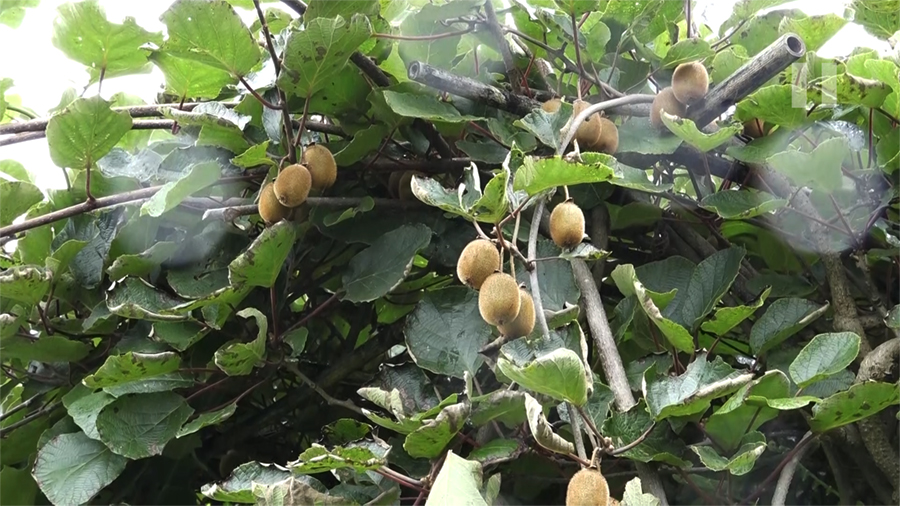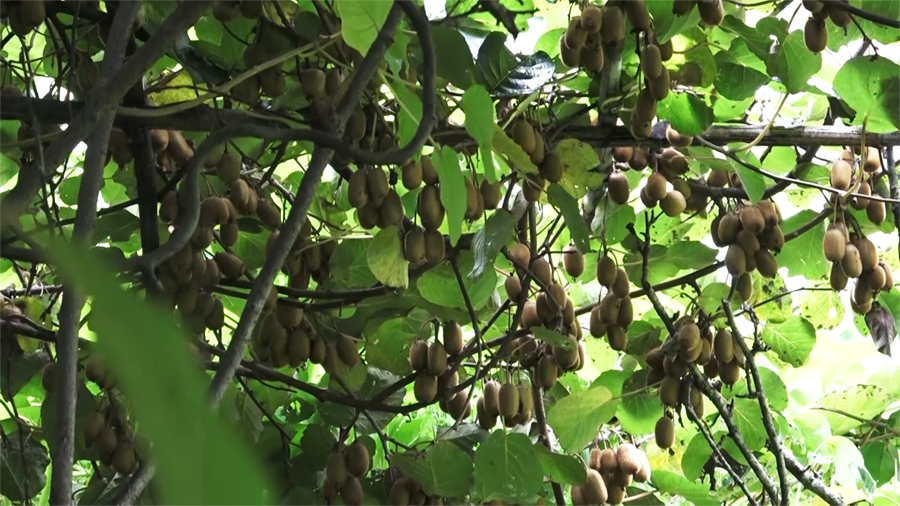
Kiwi cultivation in the country is mainly concentrated in the western and central regions, where the climate and soil conditions are ideal for its growth. In Pema Gatshel, the higher-altitude areas are emerging as promising spots for kiwi farming, offering significant economic opportunities for farmers. Many are looking forward to expanding their kiwi cultivation and aiming to make it their primary source of income.
 A few farmers in the higher-altitude areas of Pema Gatshel, with support from the district agriculture sector began experimenting with kiwi cultivation about four years ago.
A few farmers in the higher-altitude areas of Pema Gatshel, with support from the district agriculture sector began experimenting with kiwi cultivation about four years ago.
Today, as they see the results of their hard work, they are delighted.
“After all the hard work seeing the result makes me happy. It motivates me to work harder and earn more,” said Ngawang Yonten, a kiwi grower of Zobel Gewog.
“At first, we had no idea what kind of fruit it would produce. Now that it’s fruiting, we are happy. This is the first time we have seen it. We don’t even know how to eat it or what it tastes like yet,” said Dorji Pelzang, a kiwi grower of Yurung Gewog.
“We had imagined what it would be like to cultivate for the first time. But then we saw some people who had planted earlier start earning and we even got to taste it and it was very nice,” said Jigme Gyeltshen, a kiwi grower of Zobel Gewog.
Farmers are increasingly interested in cultivating more kiwi plants and are considering seeking support for training, technical assistance, and access to quality planting materials.
However, they are also concerned if the production increases in the future, they might face market challenges similar to what farmers in the country are facing with other fruits.
“I have 10 plants. And seeing other farmers’ plants bearing fruits has encouraged me. Hopefully, in two years, my plants will also start bearing fruits too. I am very interested in expanding my farm and increasing my plantation,” said Jigme Gyeltshen.
“If there is a market for the produce, I plan to plant more trees in the future,” said Dorji Pelzang.
” I am considering expanding the farm gradually as the labour is scarce here,” said Ngawang Yonten.
Currently, a kilogramme of kiwi fruit fetches Nu 200.
With proper support, infrastructure, and knowledge, farmers in higher- altitude areas can soon turn kiwi cultivation into a sustainable and lucrative source of income.
Thinley Dorji, Pema Gatshel
Edited by Sonam Pem









